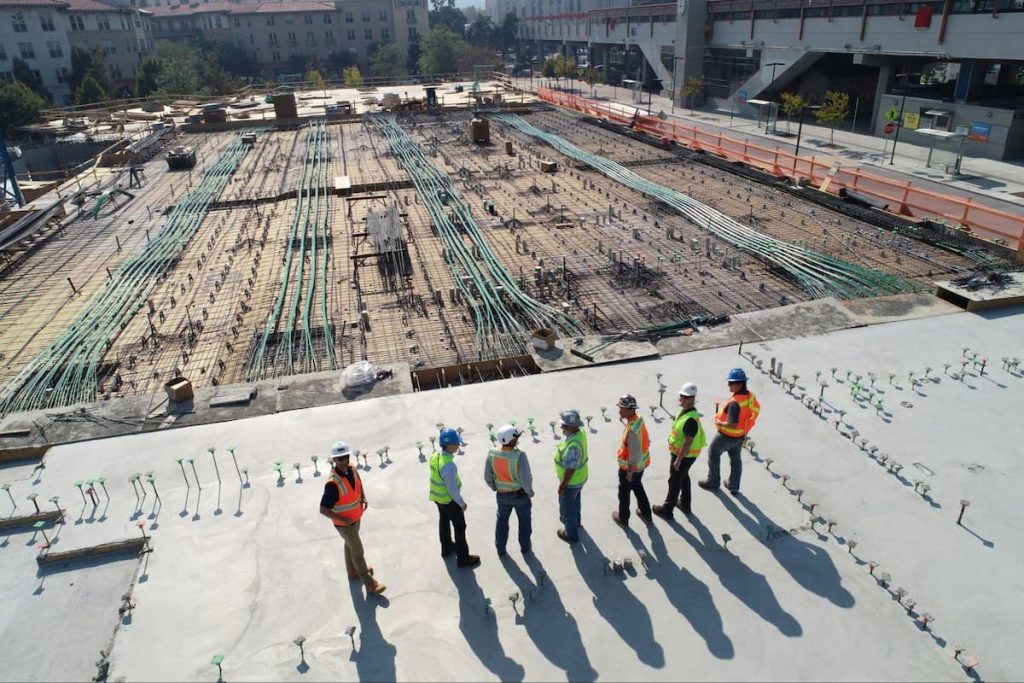Time is construction money. Efficiency is essential for success, whether reviewing plans or working on-site. Modern construction projects must meet strict timelines, complex rules, and maintain constant communication.
The latest construction trends are seeing firsthand how technology tools are transforming the industry. Construction apps aren’t just flash-in-the-pan extras—they’re fast-becoming indispensable to leading the pack on jobs. The question now is no longer if construction companies need to join the app-building bandwagon, but how fast they can evolve to lead the pack and automate their day-to-day operations.
Why Construction Requires Custom Apps More Than Ever
Construction projects are messy—sometimes quite literally. Plans change, weather breaks, equipment breaks down, and communication turns into a game of telephone gone awry. Because it is unable to represent the distinct rhythms and complexities of construction projects accurately, off-the-shelf software often falls short.
Here’s where application development platform magic becomes useful. Organizations can create customized applications tailored to their unique requirements. They won’t need to employ a large team of developers. Workers can develop software that solves real-world problems, such as tracking deliveries and recording safety checks. These platforms allow for quick adjustments to project needs, keeping teams agile and efficient.
On-Site: Apps To Simplify Operations
Picture beginning your day with a clear understanding of where all the equipment is, who is assigned to which task, and that all safety inspections are recorded without pursuing paper forms. Apps enable this to happen.
Real-time access to schedules and checklists on a mobile device transforms chaos into order. Time tracking apps eliminate guesswork when it comes to hours worked, making payroll a breeze. Equipment management apps decrease downtime by marking maintenance before breakdowns occur. Safety apps remind crews to be compliant and catch hazards early.
All of this eliminates stress, increases confidence, and turns the job site into a place where things are accomplished, not lost in paperwork. The sense of relief when technology truly assists rather than impedes is one all construction workers will welcome.
Off the Job Site: Enhancing Collaboration and Project Management
Every successful building project is the result of a team that works together like clockwork, despite geographical distance. Apps bring together field and office crews. Real-time budget, schedule, and resource adjustments are possible for project managers, and field staff are immediately informed of these modifications. When schedules are tight, this openness prevents unforeseen costs and finger-pointing. It’s not about data, but about trust and less-friction teamwork.
Think of a site manager identifying a supply problem and alerting the procurement team in real-time, instead of hours or days. This quick feedback cycle saves time and headaches. Many people find it to be a pleasant diversion from the daily struggle to locate information hidden in spreadsheets or emails. Projects proceed more quickly, decisions become more intelligent, and frustration subsides when applications connect everything.
Building Apps That Work: Key Features Construction Teams Need
Not all apps are designed for the construction industry’s demanding environment. The most effective ones operate offline, as signal loss is frequent on work sites. Users save time with intuitive interfaces that simplify navigation. Integration with existing systems lessens redundant data entry.
Teams can modify applications without needing IT support. This allows apps to be tailored to the project’s and the company’s needs. When construction teams control their apps, they feel empowered instead of frustrated by technology.
Overcoming Common Challenges in Construction App Adoption
It is hard to convince teams to use new apps, particularly where employees feel technology is a burden. To counter this, select apps that are easy to use and make work easier.
Leadership buy-in matters. When managers initiate the use of apps and highlight how helpful they will be, adoption increases. By overcoming these challenges, technology moves from a clever idea to a real game-changer and becomes a trusted partner instead of an added workload.
The Future of Construction App Development: What to Expect
In the future, construction apps will become smarter. Artificial intelligence will analyze project information to forecast potential delays before they occur. Internet of Things machines will deliver real-time equipment status directly into applications. Augmented reality will be able to lay virtual blueprints over actual space, making inspection and planning more convenient.
These technologies will be productivity essentials rather than a privilege. Flexibility towards new technologies will be fundamental. Those who adopt changes with greater agility will have a definite advantage, and application development will become a core element of their strategy.

Conclusion
Construction can be challenging without technological interference. But when created with the proper tools and attitude, apps make difficult tasks easy. App development enhances productivity, minimizes stress, and sparks innovation for on-site and office construction teams. Custom app solutions are not mere technology improvements; they result in improved projects and content teams.
